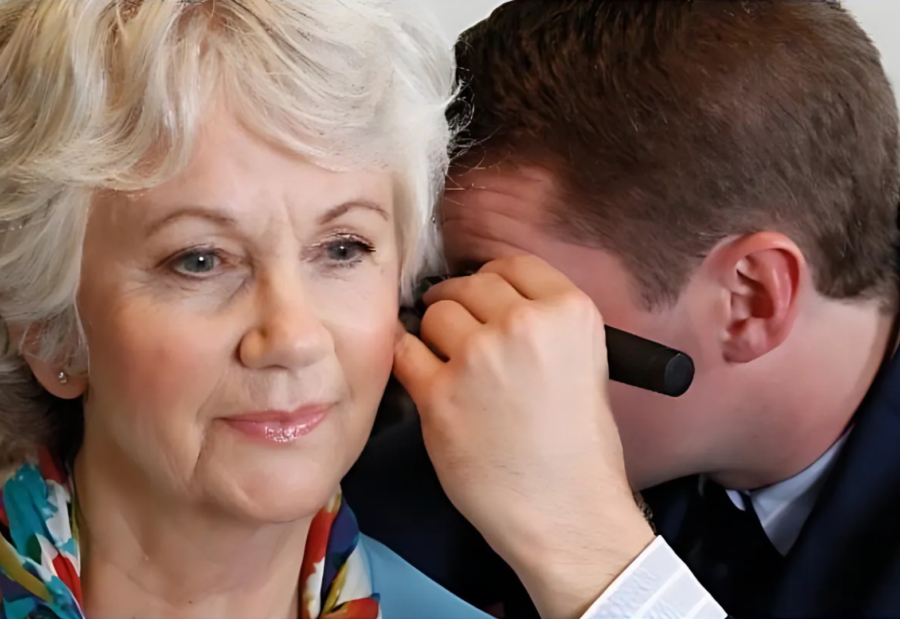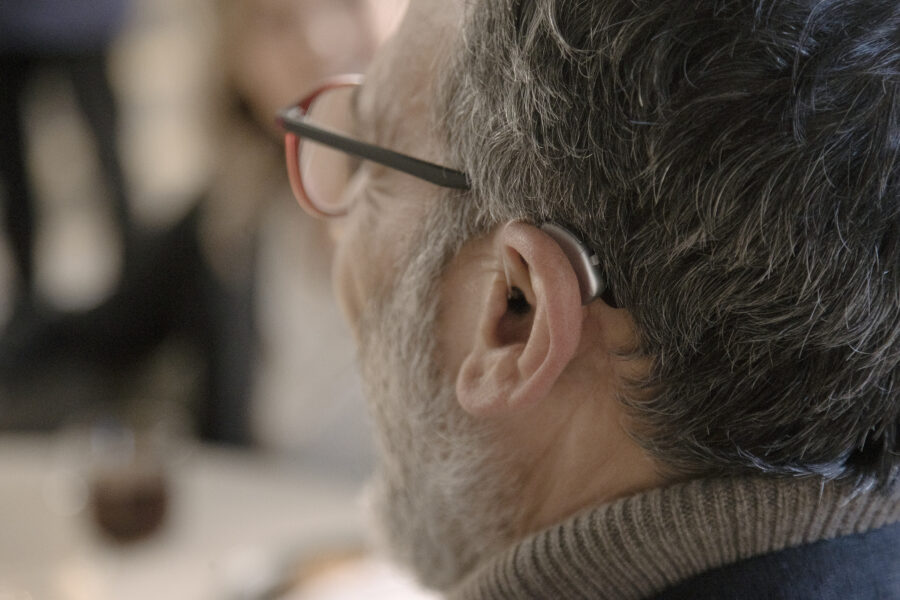Blog post
10 Common Causes of Muffled Hearing
Experiencing muffled hearing is quite common and can be attributed to various factors. The sensation may resemble having clogged ears, feeling as if you're underwater, or as though you're wearing earplugs.
While muffled hearing can sometimes resolve on its own, there are cases where medical intervention is necessary.
If you're facing persistent or worsening symptoms, we highly recommend consulting a healthcare provider or an audiologist for a comprehensive evaluation and tailored advice.
Ear wax build-up
Ear wax can block the ear canal, leading to pressure and muffled hearing. Hearing usually returns to normal after the blockage is removed.
To treat your hearing: Consult a healthcare provider for proper diagnosis and removal. Do not try to remove it yourself using objects or cotton swabs, as this can make the problem worse.
To prevent ear wax from causing your hearing to be muffled: Avoid cotton swabs to clean your ears. Use over-the-counter ear drops designed to soften ear wax and schedule regular check-ups.

Cold/flu
When you have a cold, muffled hearing is often due to congestion in the Eustachian tubes, which connect your middle ear to your throat. This congestion can disrupt the normal flow of air and sound, making your hearing seem muffled.
To treat your hearing if you have a cold/flu: Try placing a warm compress over the affected ear to help relieve congestion and improve hearing. It’s also a good idea to drink plenty of fluids to help thin mucus. Inhaling steam from a bowl of hot water can also help relieve nasal congestion.
Activities like chewing gum or swallowing frequently can help open the Eustachian tubes, improving pressure regulation in the middle ear.
When sleeping, elevating the head with extra pillows can help fluids drain from the middle ear, potentially improving symptoms.

Alcohol
Alcohol affects blood flow and fluid balance in the ears, which can alter your hearing. It’s usually not permanent, but long-term abuse can lead to issues.
To prevent your alcohol-related muffled hearing: Drink alcohol in moderation and stay hydrated to help your body process alcohol more efficiently.

Stress/anxiety
Stress can reduce blood flow to the ears, affecting hearing. It’s usually reversible when stress levels are managed.
To prevent your hearing becoming muffled through stress: Adopt long-term stress management strategies.

Age-related hearing loss
Aging can degrade the hair cells in the ear, leading to hearing loss. Unfortunately, once this damage has occurred, it typically tends to be permanent. However, wearing hearing aids can improve your hearing capabilities.
To prevent age-related hearing loss: Protect your ears from loud noises and schedule regular hearing check-ups.

Hay fever/allergies
Allergies can cause inflammation in the ears which can affect your hearing. It’s usually temporary and will subside once you’re no longer exposed to allergens.
To treat your muffled hearing due to hay fever: Use antihistamines or allergy medications.
To prevent hearing issues from hay fever: Avoid allergens and use air purifiers.

Ear/sinus infections
Ear infections cause swelling and fluid accumulation in the ear, disrupting sound flow. Sinus infections can cause fluid build-up behind the eardrum, leading to muffled hearing. The symptoms will usually subside after treatment.
To treat your hearing following an ear infection: Speak to your healthcare professional about treating the infection, they may suggest taking antibiotics.
To prevent hearing issues following an ear infection: Maintain good ear hygiene and avoid inserting objects into the ear, like cotton swabs.

After travelling on a plane
Changes in air pressure during flying can create pressure differences across the eardrum which can affect our hearing. Symptoms usually resolve after ears adjust to the new pressure.
To treat muffled hearing after plane travel: Chew gum, yawn, or use ear plugs designed for flying.

High blood pressure
High blood pressure can affect the small blood vessels in the ears, which can lead to muffled hearing. It’s usually not permanent but could be if not managed properly.
To treat muffled hearing caused by high blood pressure: Speak to a healthcare professional about how to manage your blood pressure.
To prevent issues caused by high blood pressure: Maintain a healthy diet, exercise regularly and have regular check-ups.

Ménière’s disease
Ménière's disease can cause episodes of muffled hearing, often accompanied by severe dizziness and a ringing sound in the ears. The muffled hearing is thought to be due to fluid imbalances in the inner ear, and while the condition is chronic, treatments can help manage these symptoms.
To treat hearing issues relating to Ménière's disease: Medications and lifestyle changes, such as a low-sodium diet and stress management, can help manage symptoms.
To prevent issues relating to Ménière's disease: Have regular check-ups and manage symptoms.


The insights and expertise shared in this article are brought to you by...
Hayley Gotheridge, Audiologist
Hayley had over a decade of experience in high-street Audiology, before joining OutsideClinic in 2020.



